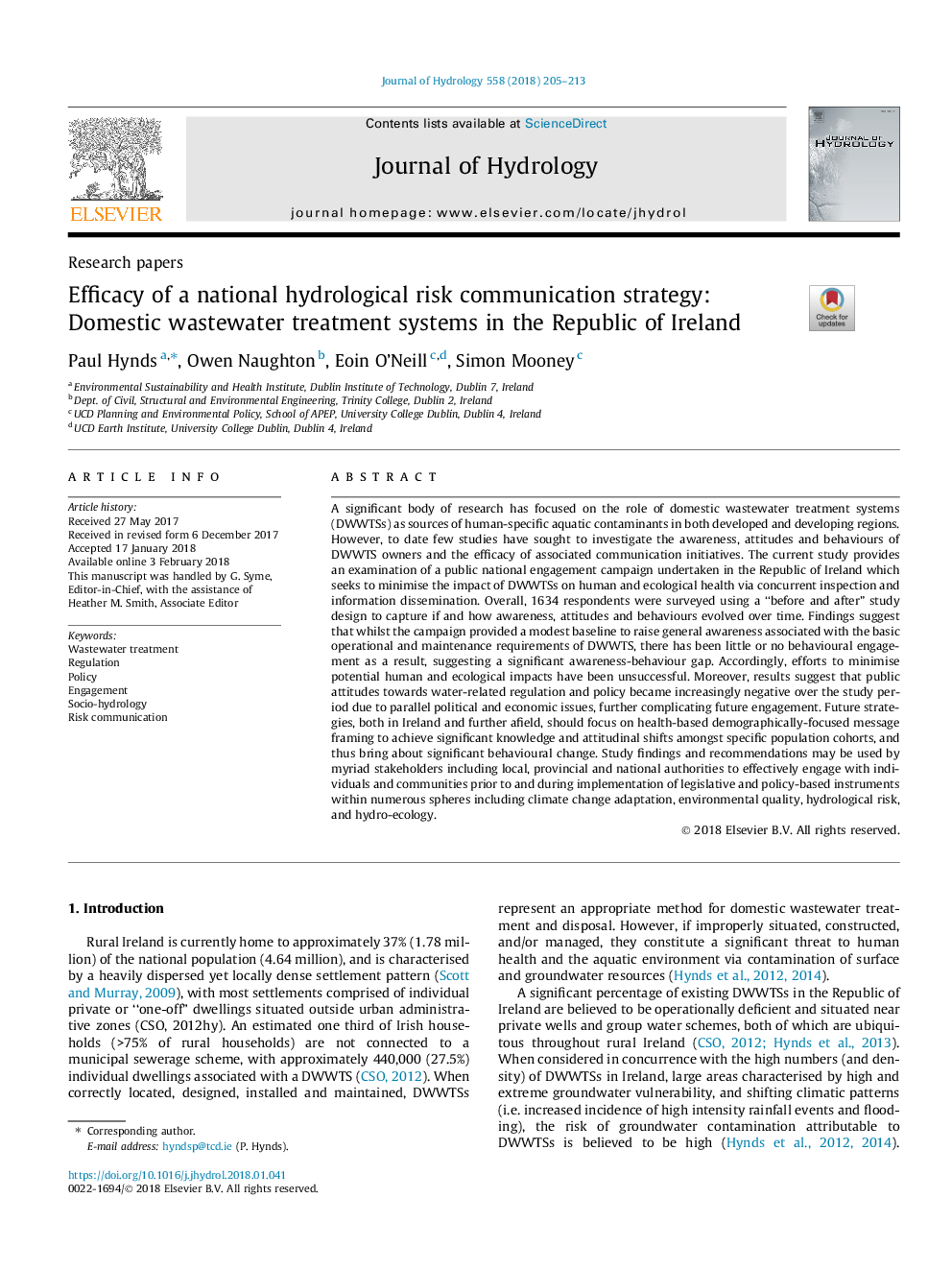ترجمه فارسی عنوان مقاله
اثربخشی استراتژی ارتباطی خطر هیدرولوژیکی ملی: سیستم های تصفیه فاضلاب داخلی در جمهوری ایرلند
عنوان انگلیسی
Efficacy of a national hydrological risk communication strategy: Domestic wastewater treatment systems in the Republic of Ireland
| کد مقاله | سال انتشار | تعداد صفحات مقاله انگلیسی |
|---|---|---|
| 157998 | 2018 | 9 صفحه PDF |
منبع

Publisher : Elsevier - Science Direct (الزویر - ساینس دایرکت)
Journal : Journal of Hydrology, Volume 558, March 2018, Pages 205-213
ترجمه کلمات کلیدی
تصفیه فاضلاب، مقررات، سیاست، نامزدی، اجتماعی هیدرولوژی، ارتباط ریسک،
کلمات کلیدی انگلیسی
Wastewater treatment; Regulation; Policy; Engagement; Socio-hydrology; Risk communication;

